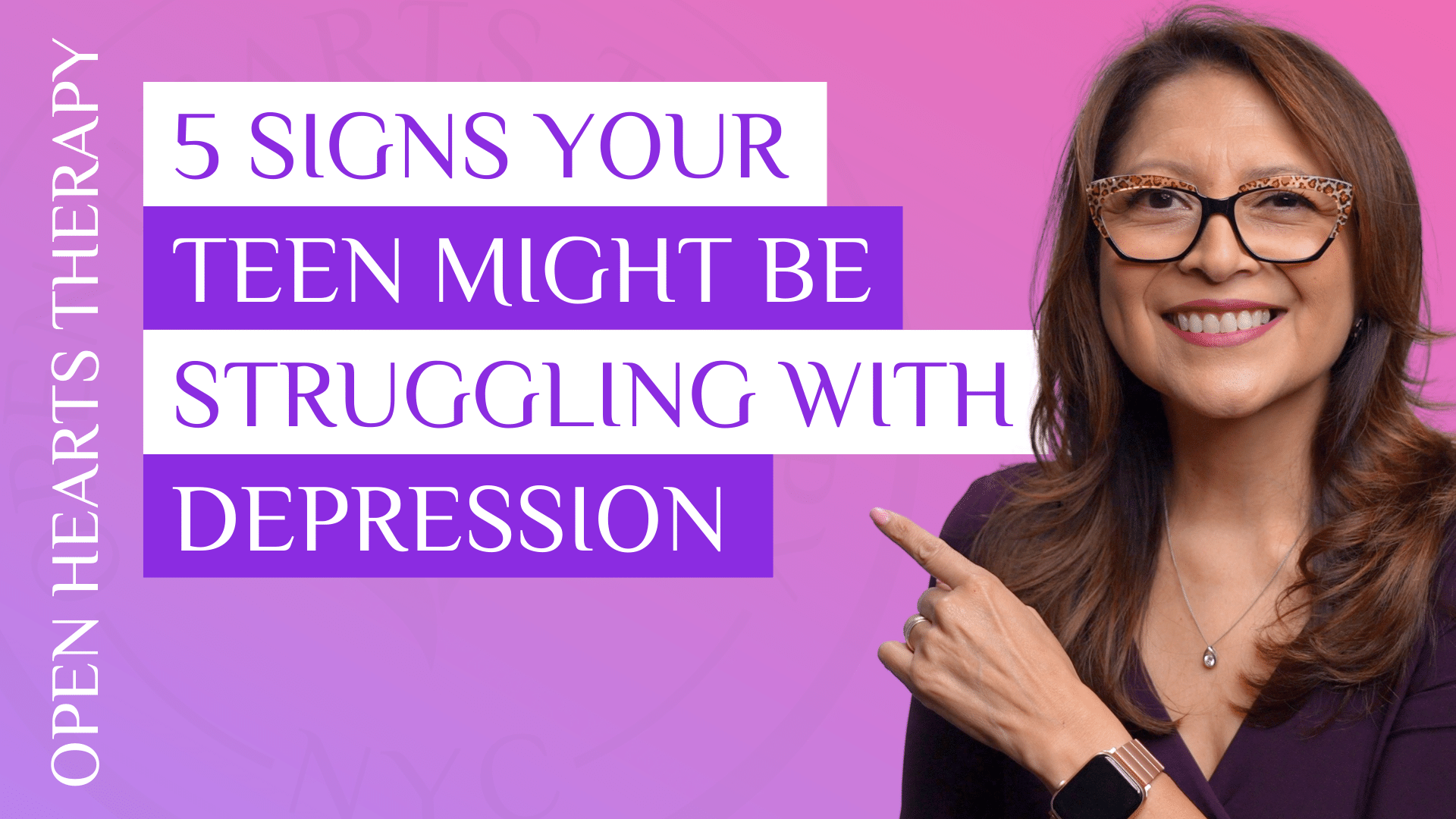
Depression is a mental illness that can affect anyone, and it becomes more prevalent among children as they grow into a teenager. If you are worried about your child’s behavior or moods, there are some signs to look out for.
I’m Dr. Dayana Jimenez, owner of Manhattan Teen & Young Adult Psychology, and In this article, I’ll share with you five common signs and symptoms that could indicate that your child is depressed and, at the end, I’ll share some tips on how to support your child who may be displaying symptoms of depression.
Here are the 5 common signs of depression to look for in your teenager:
1 – Decreased Interest In Favorite Activities
If you find your teen less interested in the things they always talked about or participated in, this could be a sign of depression.
2 – Difficulty Initiating / Maintaining Social Relationships
If you experience your teen not wanting to spend time with friends and isolating themselves. This could be a sign of depression.
3 – Declining Grades / Problematic Behavior
If you begin to see a drop in grades, reach out to your teen’s teacher and ask them if they have seen your child exhibiting any signs of depression.
4 – Change In Eating & Sleeping Patterns
If you are experiencing these changes, take a notebook out and record some of these patterns. If you see a consistent pattern of unhealthy eating or sleeping you should seek additional support.
5 – Increased Irritability& Lower Self-Esteem
Now, increased irritability and lower self-esteem is common in adolescents, but it’s important to note these changes in conjunction with other symptoms mentioned above.
These are some of the 5 most common signs and symptoms of depression.
So how can you support your child who may be experiencing these depressive symptoms?
What we know of depression is that it is typically a worry about the past that drags us down and robs us of our enjoyment of daily activities and things that we used to like to do.
We also know that consistent “behavior activations” can help your child climb out of the depressive hole they might be in. You, the parent or caregiver, know your child best and just might be the best resource in igniting their journey back to health.
Start by encouraging them to engage in the things that used to bring them joy. Physical movement is another great behavior activation.
Walking has been shown to effectively help in depressive moods. Walk with them with an understanding that they are in a tough place emotionally.
Change doesn’t come all at once and I know that can be hard for you as their parent or caregiver.
Sometimes we need to understand where our kids are at and have the patience to sit with them in their troubled emotional spaces so that they can feel less alone.
If you or your child would like extra support, please reach out and schedule an appointment today.
